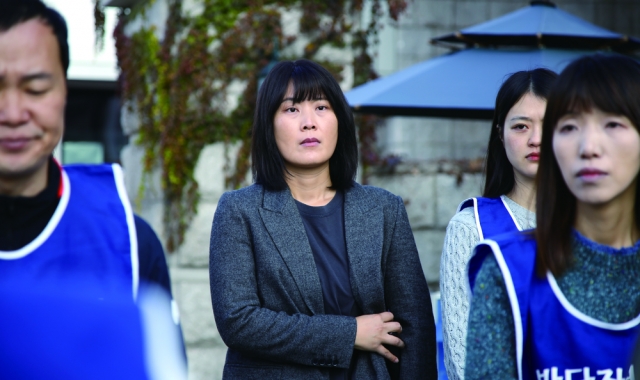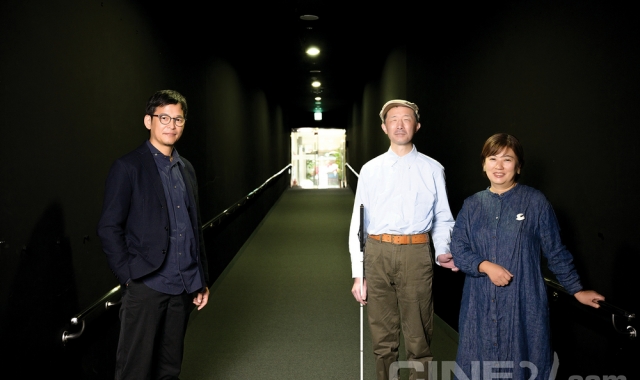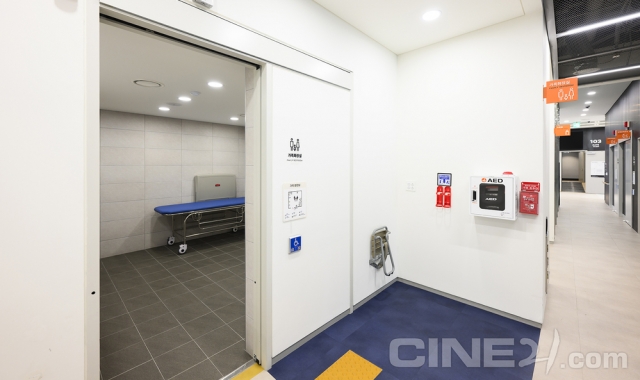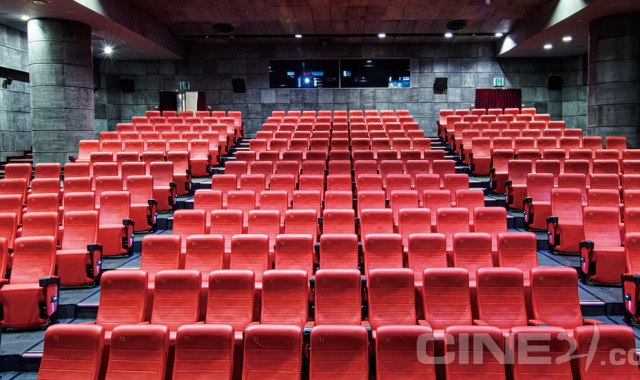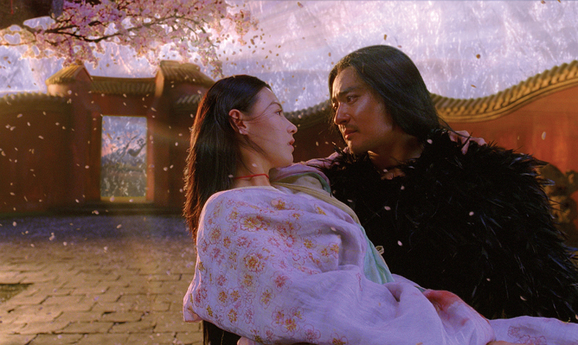
홍콩영화는 수년간 하락세에 있었는데, 바닥을 치기 전 <무간도> <맥덜>, 중국 공동제작물 <쿵푸 허슬> 같은 영화들로 간신히 살아나고 있는 정도다. 이 영화들이 드물게 한국 극장에서 개봉됐다는 것은 그 예술성과 상업성을 증명해준다. 2005년은 특히 홍콩 영화계로선 실망스러운 해였다. 서극, 관금붕, 진가신 감독 같은 주요 감독들은 표준 이하의 작품을 갖고 대형 스크린으로 돌아왔다. 두기봉 감독만이 암흑가의 정치 공작을 다룬, 칸 경쟁작인 <흑사회>로 연출 경력의 어떤 고지에 이르렀다. 미래를 내다볼 때, 홍콩영화는 신인에게 기회를 주지 않는 업계 속의 노령화되어가는 감독들로 인구통계학적인 위기를 맞고 있다. 홍콩에는 관객과 소통의 기회를 잃어가는 제작자 세대들에 새로운 인재를 선보일 수 있는 한국이나 일본 같은 단편영화 문화가 없다.
홍콩영화의 가장 큰 저주(혹은 축복)는 중국 본토의 매혹적인 유혹이다. 한국영화가 해외 세일즈로 일본에 너무 의존적이라는 염려가 있는 것과 마찬가지로, 홍콩영화도 본전을 찾기 위해선 지금 중국이 필요하다. 결국 관객은커녕 어느 한쪽도 만족시킬 수 없는, 어정쩡하게 울타리에 걸터앉듯이 타협한 영화가 그 결과다. 중국은 이제 공동제작시 국내와 국제 관객 모두를 위한 단일한 버전의 제작을 강권하고 있다. 그래서 관금붕 감독의 <장한가>는 편집실에서 중국 역사의 불미스러운 시기들을 건너뛰고, 서극 감독의 <칠검>은 색보정 과정에서 유혈 낭자한 폭력 장면의 색을 날려야만 했다. 양쪽의 조건을 공통적으로 충족시킬 수 있는 최소의 요소들만 모아놓는 일이 비일비재하다.
이런 일은 전에도 있었다. 1990년대 초반, 홍콩영화는 천문학적인 스타 기용에 대한 비용을 포함한 제작비 때문에 대만쪽의 사전 판매에 의존적인 상태였다. 홍콩영화에 대한 대만 관객의 흥미가 감퇴하자(부분적으로는 할리우드영화에 대한 개방 때문이었지만), 홍콩 영화산업은 거의 하룻밤 사이에 붕괴되었고, 지금까지도 회복을 위해 애쓰고 있다.
그리고 중국은 이제 막 앞으로 밀고 나가려 하는 시점이다. 12월, 중국은 아시아영화 사상 최고 예산인 3천만달러에, 3년의 제작기간을 들인 첸카이거 감독의 <무극>을 내놓았다. 이 영화의 결점이 어떻든 간에― 결점엔 홍콩에서 제작한 시각효과도 들어가지만― 자국영화의 미래에 대한 중국의 자신감을 대변해주는 흥미롭고 대담한 작품이다. <무극>은 한국의 장동건과 일본의 사나다 히로유키, 홍콩의 장백지와 사정봉이 함께 캐스팅되었다. 스탭의 국적 역시 그만큼 다양하다. 이 영화는 여타 국가의 영화가 본뜨기에 힘들 것으로 보이는 새로운 품종의 범아시아영화다.
최근의 아시아 블록버스터들은 공통점이 있다. 영화 자체에서 중심적이든, 영화 홍보에 사용되든, 정치가들이 자기 목적을 위해 일부러 영화에 의미를 부여하든 간에, 민족주의 의식은 박스오피스의 수익을 올려주고 있다. 예로 중국의 <영웅>, 일본의 <남자들의 야마토>, 그리고 한국의 <서편제> <태극기를 휘날리며> 같은 영화들이 여기에 포함된다. 민족주의는 모든 세대를 가로지르며, 젊은 층이 형성하는 일반적인 영화관객 통계를 벗어나는 이들을 끌어들인다. 그러나 홍콩은 흥행을 보증해주기 위해 끌어낼 만한 깊은 민족주의 의식이 없다. 그 역사는 불편한 관계에 있는 중국 역사와 엮여 있다. 2005년 홍콩영화 중 그나마 민족주의적인 것에 가까운 영화는 <흑사회>인데, 딱하게도 거대한 중국 역사 속에 홍콩 삼합회의 위치를 낭만적으로 주장하면서 그렇게 된 거다. 홍콩영화는 여전히 약자로 남아 있을 것이다.
Hong Kong cinema has been in a state of decline for several years, saved by last-minute December reprieves in the form of Infernal Affairs <무간도>, My Life as McDull <맥덜> and China co-production Kung Fu Hustle <쿵푸 허슬>. That each received that rare thing, a Korean theatrical release, is evidence of their artistic and commercial merits.
2005 has been a particularly disappointing year for Hong Kong cinema. Major directors such as Tsui Hark <서극>, Stanley Kwan <관금붕> and Peter Chan <진가신> returned to the big screen with substandard work. Only Johnnie To <두기봉> delivered a career high with Cannes competition-entry Election <흑사회>, about political maneuvering in the underworld.
Looking to the future, Hong Kong cinema faces a demographic crisis in its aging population of film directors within an industry that gives few opportunities to newcomers. Hong Kong lacks the short film culture of South Korea or Japan that can bring new talent to the attention of a generation of producers losing touch with audiences.
Hong Kong cinema's greatest curse (or blessing) is the seductive lure of mainland China. Just as there is concern that Korean cinema is too dependent on Japan for foreign sales, Hong Kong films now needs China just to break even. The result is a compromised cinema that straddles a fence, rarely satisfying either audience let alone both.
China now insists on a single version of co-produced films, for both domestic and international audiences. Stanley Kwan's Everlasting Regret <장한가> had to leap over uncomfortable periods of Chinese history in the editing room while the bloody violence of Tsui Hark's Seven Swords <칠검> was bleached in the color-correction process. The lowest common denominator rules.
It's happened before. In the early 1990s, Hong Kong cinema was dependent on pre-sales to Taiwan for its production budgets, including astronomic star fees. When Taiwan audience's interest in the territory's cinema waned (partly due to an opening up to Hollywood film), the Hong Kong industry collapsed almost overnight and has struggled to recover ever since.
And China is on the brink of moving on. In December it delivered the most expensive Asian film to date, Chen Kaige's three-years-in-the-making The Promise <무극> at $30m. Whatever the film's failings - including the Hong Kong-produced visual effects - it is an exciting and audacious work that speaks for China's confidence in its own cinematic future.
The Promise <무극> casts Korea's Jang Dong-gun <장동건> and Japan's Sanada Hiroyuki <사나다 히로유키> alongside two of Hong Kong's most attractive stars, Cecilia Cheung <장백지> and Nicholas Tse <사정봉>. The nationality of its crew is similarly diverse. It is a new breed of pan-Asian cinema that other national cinemas will find difficult to replicate.
Recent Asian blockbusters share something in common.
Whether central to the film itself, used in the promotion of the film, or imposed on the film by politicians for their own purposes, a sense of nationalism has driven box office returns. Examples include China's Hero <영웅>, Japan's Yamato <야마토> and Korean films as varied as Sopyonje <서편제> and Taegukgi <태극기 희날리며>. Nationalism crosses all ages, attracting audiences outside of cinema's youthful demographic.
But Hong Kong has no deep sense of nationalism to draw upon to guarantee box office. It's history is tied to the history of China, something it has an uncomfortable relationship with. Perversely, the nearest thing to a nationalistic Hong Kong film in 2005 year was Election <흑사회>, for its romantic assertion of local triads position in greater Chinese history. Hong Kong cinema is going to remain the underdog.

